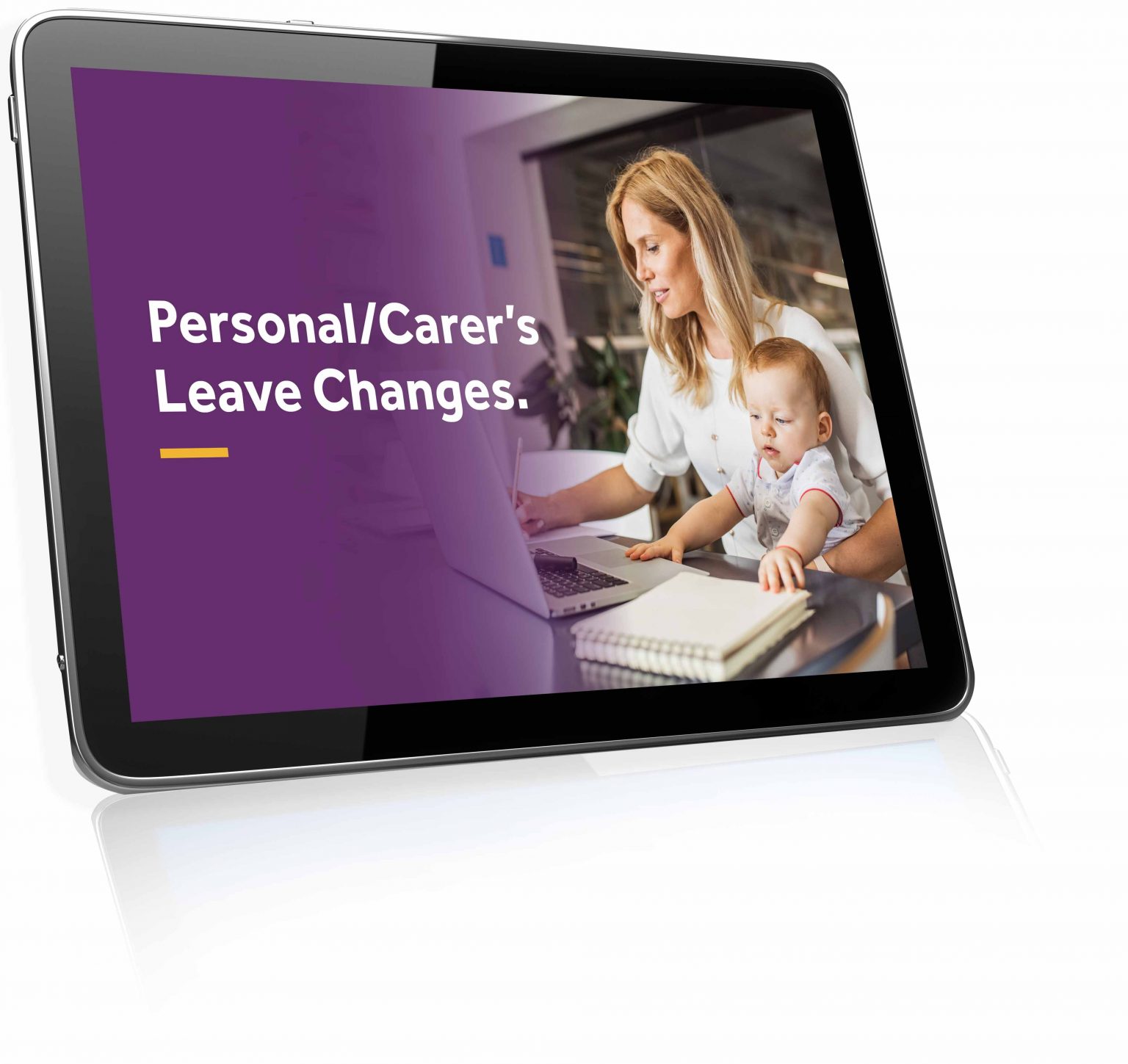
At some point during their employment, every staff member will need to take personal leave. Whether it’s due to the flu or caring for a sick parent, life happens and we need to take time off work.
Under the National Employment Standards (NES) every permanent employee is entitled to 10 days of personal leave each year. For most employees, this is ample. Trouble arises when an employee takes longer periods of personal leave, whether paid or unpaid.
If not effectively managed, extended personal leave can have a significant impact on the successful operation of your small business, however every business is required to adhere to the National Employment Standards (NES), or more favorable terms in applicable industrial instruments.
How do you balance your business operations with an employee’s entitlement to personal leave? As a business owner, it is vital that you understand these rights in relation to extended personal leave.
Personal Leave Explained
Personal leave (also known as sick/carer’s leave) is an entitlement which permits an employee to take paid time off to help deal with personal illness, caring responsibilities and family emergencies. The minimum entitlement of paid personal leave for a full-time employee is 10 days per year. Paid personal leave accrues during the year in accordance with the number of hours the employee works. Personal leave also accumulates when the employee is on period of paid leave, such as annual leave. However, personal leave does not accrue if they are on unpaid leave.
Employees are obligated to give notice for personal leave as soon as they can. An employer has the right to request evidence, which may include proof such as a medical certificate or a statutory declaration. There is no entitlement to payment once the accrual is used up.
Managing Extended Personal Leave
Sometimes a staff member will take longer periods of personal leave. This could be for a variety of reasons, but it raises a common issue: what are the obligations of the employer and the rights of the employee in instances of extended personal leave?
The most effective way to manage extended employee personal leave is to establish clear written guidelines highlighting what employees are entitled to. If employees are away from work often and taking extended personal leave, it is crucial that the employer makes them aware of the guidelines and documents their absence in each instance, in case it is needed for reference down the track.

Get the lowdown on sick and carer's leave
If you’re an employer, then at some stage you’re going to have to deal with sick leave. While there have been generally accepted practices in managing Personal/Carer’s leave, the High Court has reversed an earlier decision that had fundamentally changed sick leave. This e-guide will help you understand the new calculation, so you can meet your obligations and protect your business.
